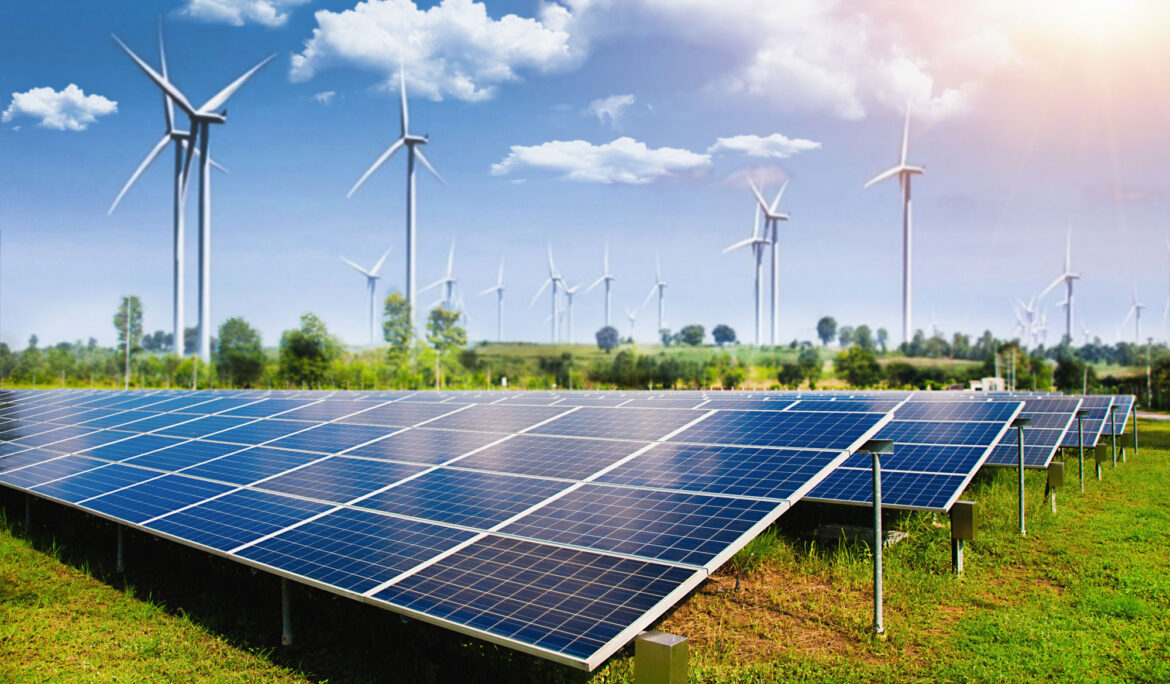
In the face of rising energy costs, growing environmental awareness, and a desire for energy independence, European households are increasingly turning to renewable energy solutions. As solar panels, wind turbines, and other renewable energy sources gain popularity, the need for efficient, reliable, and durable energy storage systems has become more pressing. Among the various battery technologies available, lithium-ion batteries have emerged as the leading choice for residential energy storage.
This article will delve into the numerous benefits of lithium batteries for European homes, addressing the growing demand for energy storage in a renewable-driven world. We will explore the technical, environmental, and economic advantages of lithium-ion batteries, highlighting why they have become the preferred solution for homeowners across Europe. The future of sustainable energy storage hinges on the development of technologies like lithium-ion batteries, making it essential for homeowners, policymakers, and energy providers to understand their benefits.
Outline
- The Growing Need for Energy Storage in Europe
1.1 The shift towards renewable energy
1.2 The role of energy storage in achieving energy independence
1.3 Government incentives and policies supporting energy storage systems - Lithium-Ion Battery Technology Explained
2.1 What are lithium-ion batteries?
2.2 How do lithium-ion batteries compare to other battery technologies?
2.3 Advances in lithium-ion battery technology - The Benefits of Lithium-Ion Batteries for European Homes
3.1 High energy density and efficiency
3.2 Long lifespan and durability
3.3 Compact design and scalability
3.4 Faster charging times
3.5 Low maintenance requirements
3.6 Enhanced safety features - Environmental Benefits of Lithium-Ion Batteries
4.1 Reduced carbon footprint
4.2 Facilitation of renewable energy usage
4.3 Recycling and the future of lithium-ion battery disposal - Economic Benefits of Lithium-Ion Batteries for Homeowners
5.1 Energy cost savings
5.2 Increased property value
5.3 The impact of government subsidies and tax incentives
5.4 Return on investment: A long-term perspective - Overcoming Challenges: The Future of Lithium-Ion Batteries in Europe
6.1 Addressing concerns about raw material sourcing
6.2 The development of recycling infrastructure
6.3 The potential of solid-state batteries and other future advancements - Conclusion: Why Lithium-Ion Batteries are Key to Europe’s Renewable Future
Also read: The Role of Lithium Batteries in Europe’s Electric Vehicle Revolution
1. The Growing Need for Energy Storage in Europe
1.1 The Shift Towards Renewable Energy
Europe is at the forefront of the global energy transition, with ambitious goals to reduce carbon emissions and reliance on fossil fuels. The European Union’s Green Deal and various national policies aim to achieve climate neutrality by 2050, and renewable energy is central to this plan. Countries like Germany, Spain, and Denmark are rapidly increasing their capacity for solar, wind, and hydroelectric energy.
However, renewable energy sources such as solar and wind are intermittent—they generate electricity when the sun shines or the wind blows, but they don’t provide a constant supply. This variability requires an efficient means of storing excess energy for later use, especially in homes that rely on these renewable sources for electricity.
1.2 The Role of Energy Storage in Achieving Energy Independence
Energy storage plays a crucial role in managing the intermittent nature of renewables, enabling households to become more energy independent. Lithium-ion batteries allow homes to store excess electricity generated during peak production times (such as sunny afternoons for solar panels) and use it during periods of low production (such as nighttime or cloudy days).
This energy autonomy reduces dependence on the grid, lowers energy bills, and ensures that homes can continue to function even during power outages or energy shortages. For European households that are increasingly adopting solar panels and other renewable technologies, energy storage systems, particularly lithium-ion batteries, are becoming indispensable.
1.3 Government Incentives and Policies Supporting Energy Storage Systems
European governments are aware of the benefits of residential energy storage and are offering financial incentives to encourage the adoption of these technologies. In Germany, the KfW loan program offers low-interest loans for energy storage systems paired with renewable energy. In Italy, the “Superbonus” tax credit can cover up to 110% of the cost of installing solar panels and storage systems.
These incentives are making energy storage systems more affordable and accessible for homeowners, further driving demand for lithium-ion batteries.
2. Lithium-Ion Battery Technology Explained
2.1 What Are Lithium-Ion Batteries?
Lithium-ion batteries are rechargeable batteries that use lithium ions to move between electrodes, storing and releasing electrical energy. These batteries have been widely used in consumer electronics, such as smartphones and laptops, and are now increasingly deployed in energy storage systems for homes, electric vehicles, and industrial applications.
Lithium-ion batteries are popular due to their high energy density (meaning they can store a large amount of energy in a relatively small space), long lifespan, and efficiency.
2.2 How Do Lithium-Ion Batteries Compare to Other Battery Technologies?
Compared to other types of batteries, such as lead-acid or nickel-cadmium, lithium-ion batteries offer superior performance in key areas:
- Energy Density: Lithium-ion batteries can store more energy in less space.
- Lifespan: These batteries can withstand more charge and discharge cycles, lasting longer.
- Efficiency: Lithium-ion batteries have a higher round-trip efficiency, meaning less energy is lost when charging and discharging.
- Maintenance: Unlike lead-acid batteries, lithium-ion batteries require little to no maintenance, making them ideal for residential use.
2.3 Advances in Lithium-Ion Battery Technology
Recent advances in lithium-ion battery technology have further improved their efficiency, safety, and lifespan. Innovations such as solid-state batteries (which use a solid electrolyte instead of a liquid one) promise even better energy density and safety features, though they are still in development.
3. The Benefits of Lithium-Ion Batteries for European Homes
3.1 High Energy Density and Efficiency
Lithium-ion batteries have one of the highest energy densities of any battery technology available today, meaning they can store a substantial amount of energy in a small footprint. This makes them perfect for residential use, where space is often limited. Homes equipped with lithium-ion batteries can store enough energy to power appliances, lighting, and heating systems even when the renewable source (like solar) is not actively generating energy.
In terms of efficiency, lithium-ion batteries have a round-trip efficiency of around 90-95%. This means that for every kilowatt-hour (kWh) of electricity used to charge the battery, 90-95% of that energy can be retrieved when needed, minimizing waste and improving overall energy savings.
3.2 Long Lifespan and Durability
Lithium-ion batteries are known for their long lifespan. A typical lithium-ion battery can last 10-15 years or more, depending on usage patterns and maintenance. They can endure thousands of charge-discharge cycles without significant degradation, making them a reliable long-term investment for homeowners.
This durability ensures that European homes equipped with lithium-ion batteries will benefit from consistent performance over time, contributing to both energy security and financial savings.
3.3 Compact Design and Scalability
The compact size of lithium-ion batteries makes them ideal for residential installations, where space may be limited. They can easily fit in a garage, basement, or utility room, and their modular design allows homeowners to scale up their storage capacity as needed.
If energy demand increases, more lithium-ion battery modules can be added to an existing system without the need for a complete overhaul. This scalability is an important feature for households that may expand their renewable energy capacity in the future.
3.4 Faster Charging Times
Lithium-ion batteries charge more quickly than traditional lead-acid batteries. This rapid charging ability is particularly advantageous for homes with solar panels, as it allows them to store energy efficiently during peak sunlight hours. Faster charging times also mean that in the event of a power outage, a lithium-ion battery can be quickly replenished when the power grid or renewable source is back online.
3.5 Low Maintenance Requirements
One of the key advantages of lithium-ion batteries is that they require very little maintenance compared to older battery technologies like lead-acid. Lead-acid batteries need regular monitoring and maintenance, including checking water levels and cleaning terminals to prevent corrosion. Lithium-ion batteries, in contrast, are almost maintenance-free, which makes them more convenient for homeowners.
3.6 Enhanced Safety Features
While early lithium-ion batteries were associated with concerns about safety and overheating, modern lithium-ion energy storage systems come equipped with multiple layers of protection, including advanced battery management systems (BMS) that monitor temperature, voltage, and charge levels. These systems ensure that the battery operates safely and efficiently, reducing the risk of overheating or other malfunctions.
4. Environmental Benefits of Lithium-Ion Batteries
4.1 Reduced Carbon Footprint
Lithium-ion batteries enable homes to store energy generated from renewable sources like solar and wind, significantly reducing the need for electricity from fossil-fuel-powered grids. By storing excess energy for later use, households can reduce their carbon footprint and contribute to Europe’s broader goal of lowering greenhouse gas emissions.
4.2 Facilitation of Renewable Energy Usage
One of the main environmental benefits of lithium-ion batteries is their ability to enhance the efficiency of renewable energy systems. Instead of wasting excess energy generated by solar panels or wind turbines during peak production times, lithium-ion batteries allow that energy to be stored and used later, increasing the overall effectiveness of renewable energy sources.
4.3 Recycling and the Future of Lithium-Ion Battery Disposal
While lithium-ion batteries have a long lifespan, they will eventually need to be replaced. However, efforts are underway to improve the recycling of lithium-ion batteries to recover valuable materials like lithium, cobalt, and nickel. Europe is already investing in recycling infrastructure to ensure that old batteries are not wasted but instead repurposed for new applications, further reducing the environmental impact of energy storage systems.
5. Economic Benefits of Lithium-Ion Batteries for Homeowners
5.1 Energy Cost Savings
One of the most immediate economic benefits of lithium-ion batteries is the potential for significant energy cost savings. By storing excess energy produced by solar panels or other renewable sources, homeowners can reduce their reliance on the grid and avoid purchasing expensive electricity during peak demand periods. In some European countries, homeowners can even sell excess stored energy back to the grid, providing an additional revenue stream.
5.2 Increased Property Value
Homes equipped with energy storage systems like lithium-ion batteries are often seen as more attractive to buyers. The ability to store renewable energy, reduce utility costs, and ensure energy independence can increase property value, making homes with these systems a valuable long-term investment.
5.3 The Impact of Government Subsidies and Tax Incentives
As mentioned earlier, many European countries offer financial incentives for homeowners who install energy storage systems. These subsidies and tax incentives significantly reduce the upfront cost of installing lithium-ion batteries, making them a more affordable option for a wide range of households. These incentives, combined with long-term energy savings, make lithium-ion battery systems a financially sound investment.
5.4 Return on Investment: A Long-Term Perspective
While lithium-ion batteries may have a higher upfront cost compared to other battery technologies, their long lifespan, low maintenance requirements, and energy savings lead to a strong return on investment (ROI) over time. Homeowners can expect to recoup their initial investment through reduced energy bills and potential government incentives within a few years of installation.
6. Overcoming Challenges: The Future of Lithium-Ion Batteries in Europe
6.1 Addressing Concerns About Raw Material Sourcing
One of the challenges facing the lithium-ion battery industry is the sourcing of raw materials like lithium, cobalt, and nickel. The mining of these materials has environmental and ethical concerns, but efforts are underway to develop more sustainable sourcing practices and reduce reliance on scarce resources. Companies are also investing in alternative battery technologies that use fewer critical materials.
6.2 The Development of Recycling Infrastructure
As the demand for lithium-ion batteries grows, so too does the need for robust recycling infrastructure. Europe is leading the way in developing systems for recycling lithium-ion batteries, ensuring that valuable materials can be reused and environmental impact minimized.
6.3 The Potential of Solid-State Batteries and Other Future Advancements
While lithium-ion batteries are currently the best option for residential energy storage, future technologies like solid-state batteries promise even better performance. Solid-state batteries offer higher energy densities, faster charging times, and enhanced safety, making them a potential successor to lithium-ion batteries in the years to come.
7. Conclusion: Why Lithium-Ion Batteries are Key to Europe’s Renewable Future
Lithium-ion batteries offer European homeowners a range of benefits, from energy independence and cost savings to environmental sustainability and increased property value. As Europe continues its transition to renewable energy, lithium-ion batteries will play an increasingly important role in ensuring that homes can efficiently store and use clean energy.
With continued advances in technology, supportive government policies, and the development of recycling infrastructure, lithium-ion batteries are poised to become a cornerstone of Europe’s renewable energy future.




